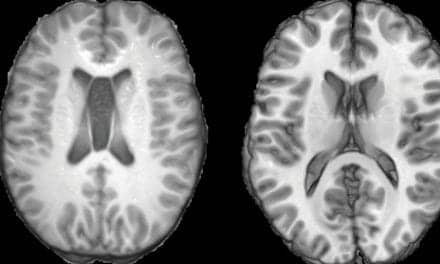New insight into the brain’s immune system may help pave the way for new treatments for stroke and other related conditions, according to The University of Manchester scientists. A university news release notes that understanding how inflammation is regulated in the brain, is key for the development of treatments to limit damage caused by a stroke.
To this end, David Brough, PhD, Faculty of Life Sciences, working alongside colleagues including professors Dame Nancy Rothwell, BSc, PhD, DSc, FMedSci, FRS, and Stuart Allan, BSc, PhD, have studied the role of inflammasomes in stroke. Inflammasomes are large protein complexes that are key for the production of the inflammatory protein interleukin-1. The release notes that interleukin-1 contributes to cell death in the brain following a stroke.
Brough states in the release that little is known about the involvement of inflammasomes in brain injury.
“Therefore, we began by studying the most well researched inflammasome NLRP3, which is known to be activated when the body is injured. Surprisingly we found that this was not involved in inflammation and damage in the brain caused by stroke, even though drugs are being developed to block this to treat Alzheimer’s disease.”
The release reports that further studies using experimental models of stroke indicated that it was actually the NLRC4 and AIM2 inflammasomes that contribute to brain injury, rather than NLRP3. The new discovery is hoped to help the Manchester researchers learn more about how inflammation is involved in brain injury and develop new drugs for the treatment of stroke.
In addition to identifying new targets for potential drug treatments for stroke, Brough adds that “We know very little about how the immune system is regulated in the brain. However, it’s important we understand this since it contributes to disease and injury. For example, in addition to stroke, Alzheimer’s disease has an inflammatory aspect and even depression may be driven by inflammation.”
The paper “AIM2 and NLRC4 inflammasomes contribute with ASC to acute brain injury independently of NLRP3” will be published in PNAS.
The release also notes that the research was funded by the Wellcome Trust and Medical Research Council. The researchers’ thanks go out to both of these organizations for their funding.
Source: The University of Manchester





